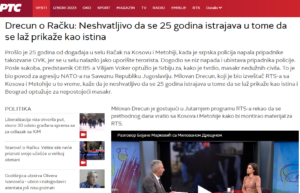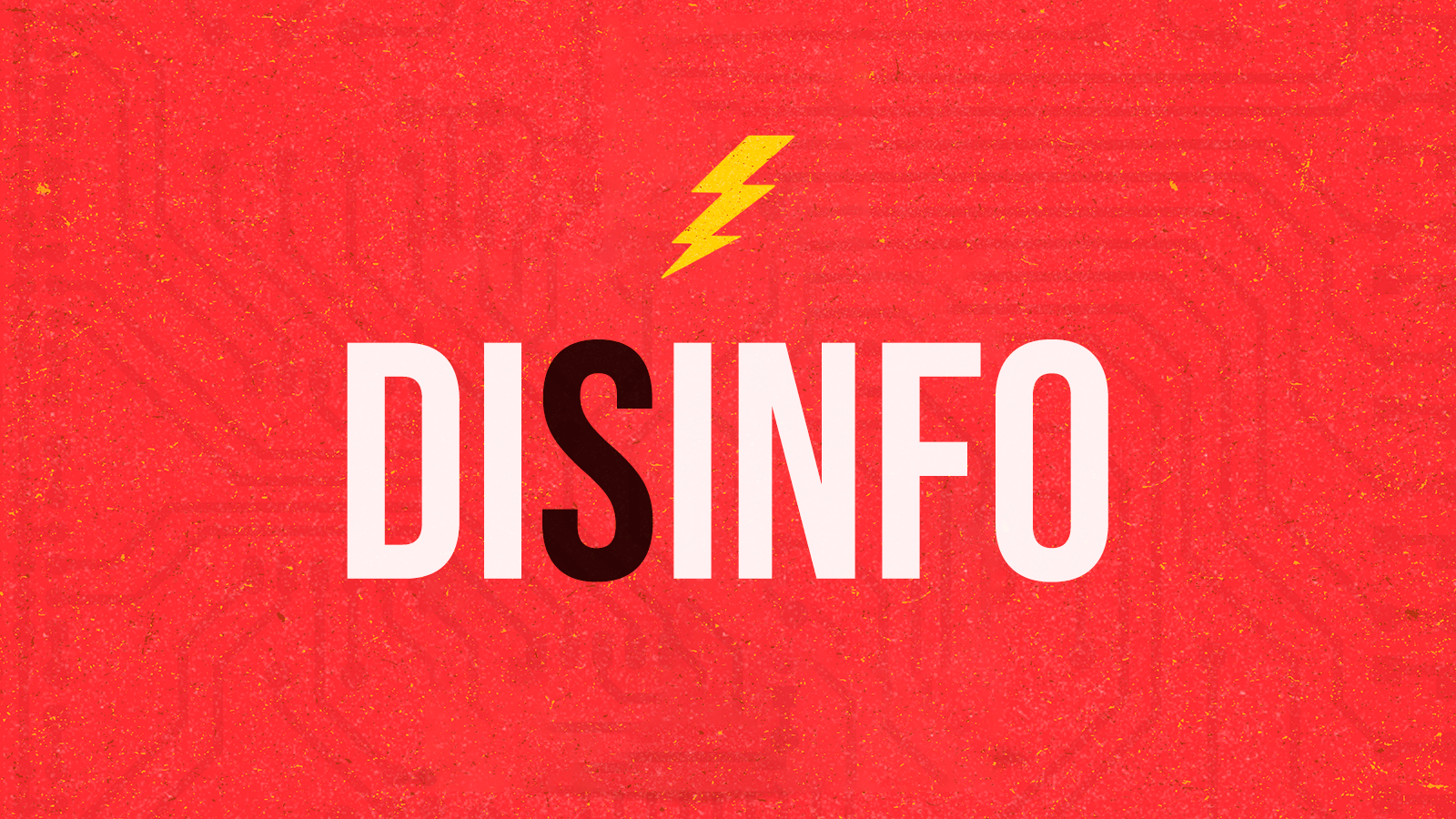On the 25th anniversary of the Reçak Massacre, politicians and some Serbian media outlets resurrected the narrative that the monstrous crime, confirmed even by international organizations, is a fabrication and a lie.
According to them, the massacre was used as a pretext to launch a massive media campaign against the former Milosevic regime, culminating in NATO's bombing of military and police targets in Serbia.
Serbian media have been fueled by statements from those who were involved in the case, such as former investigative judge, Danica Marinkovic, who denied that there was a massacre in Reçak. She claims to base her stance on the evidence gathered during investigations at the crime scene. Moreover, the former head of the OSCE, William Walker, who was among the first to visit the scene and denounce the crime committed by Serbia, has been called an American spy by the Serbian judge, claiming that 'his statements were used as a pretext to bomb Serbia.' The same version has been given by the State Secretary of the Serbian Ministry of Defense, ,Nemanja Starovic, who claims there is enough evidence for the truth of Reçak. Retired Serbian police general Goran Radosavljevic and the chairman of the Parliamentary Commission for Kosovo in the Serbian Assembly, Milovan Drečun, have also spoken in the same tone.

Photo: RTS
In addition to the statements, articles have been accompanied by sensational headlines, among which RTS published an article titled: "A quarter century since the Reçak case - the event that caused NATO bombings."
However, not only Kosovo but also various international organizations consider this massacre the most heinous crime to have occurred in Kosovo. Organizations like Human Rights Watch have determined that on January 15, 1999, Serbian forces killed over 45 innocent Albanian civilians. Witnesses have recounted that Reçak was surrounded in the early hours of January 15. According to them, around 6:30 a.m., Serbian forces bombarded the village with heavy artillery to continue with killings and raids. A Washington Post report states that "the victims were unarmed civilians executed in an organized massacre, some of them forced to kneel before being sprayed with bullets" Serbia had attempted to erase traces of the crime, leading to a 48-hour battle for the retrieval of bodies, between the KLA and Serbian forces.
Even on this anniversary, state leaders and politicians in Kosovo reinforced the narrative of Serbian crimes by paying homage at the memorial in Reçak.
Prime Minister Albin Kurti explained why William Walker is so hated by Serbs. "When the Reçak Massacre happened, Ambassador William Walker, as the head of the OSCE mission in Kosovo, came here to the villagers and spoke the truth, saying that this is a massacre and a crime against humanity. We know that the truth is the greatest enemy of dictators and chauvinists, so to this day Ambassador William Walker remains the most attacked and hated international figure in Serbia," said Kurti.
William Walker, who attended the 25th anniversary of this massacre, expressed satisfaction that the commemoration continues to be followed with great interest, expressing the wish that when he dies, he be buried in Kosovo.
This is not the first time that Serbian media attempt to create such narratives when it comes to crimes committed in Kosovo. Such narratives have also been constructed regarding NATO's intervention in 1999, portraying it as aggression against an independent country, without mentioning the fact that Serbia was bombed due to Milosevic's crimes against innocent civilians.
*This article is published as part of the Western Balkans Regional Initiative against disinformation. “Western Balkans Anti-Disinformation Hub: exposing malign influences through watchdog journalism.”





























































